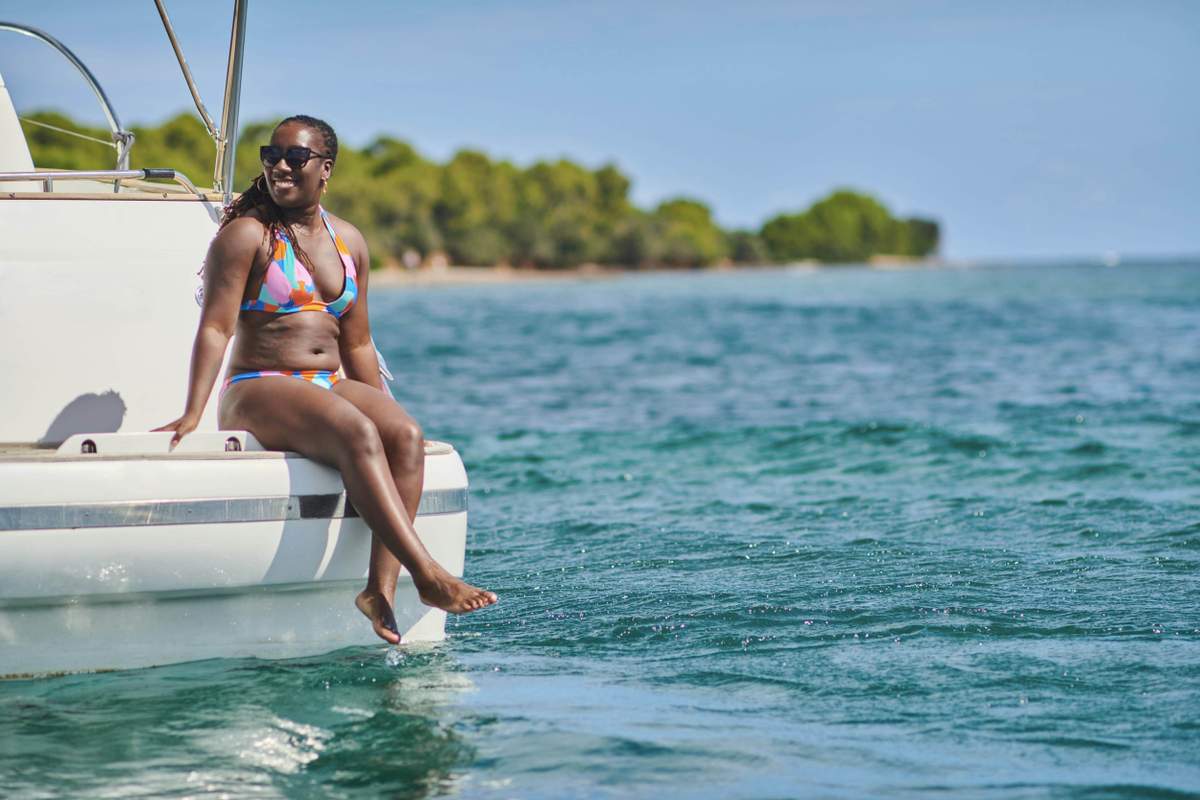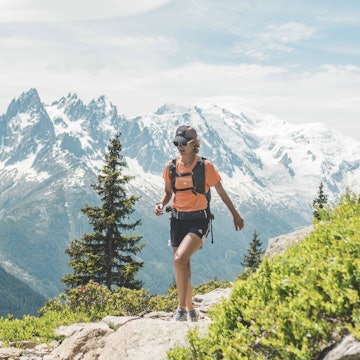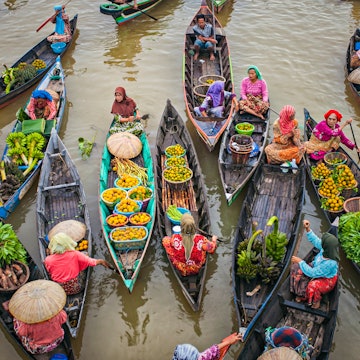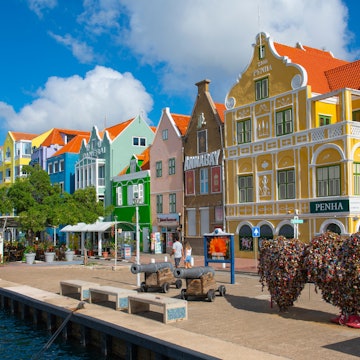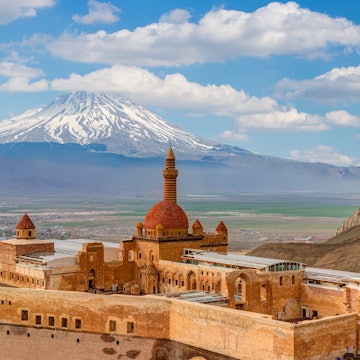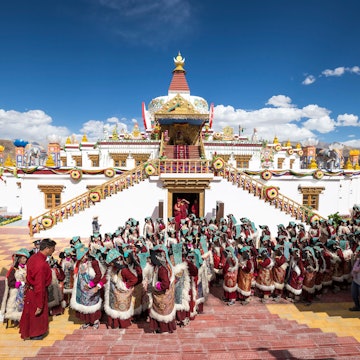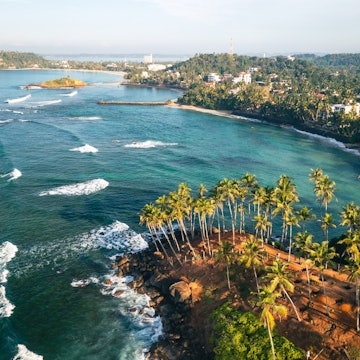

Mallorca's Serra de Tramuntana mountains are a world away from the beach towns of the Spanish island.
Striking out on your own can reap unexpected rewards – as Oliver Smith discovers when he inadvertently embarks on his first solo walking holiday, discovering giddy heights and hidden depths on the island of Mallorca.
Whenever I go hiking, I go with my friend Big Al.
Our adventures in Britain have taken us from the rainy peaks of Snowdonia to the rainy peaks of the Scottish Highlands. He is an excellent mountain guide, not least because he does it for a living. He has pockets with Tardis-like properties, out of which all forgotten items can be summoned on request. And when things go wrong on a hike – when you’ve got a faceful of rain, a bootful of cowpat and are weeping inaudibly in a mountaintop gale – Big Al comes to the rescue. He can pick you up like a cat grabbing a kitten in its mouth, and deposit you by the fireside in the nearest pub. Then, after a few pints you can pretend it never happened and you are the Ernest Shackleton of millennials. This is why I’ve never walked alone. Why Al walks with me, I’m not sure. Perhaps it’s practice for guiding school groups.
Big Al and I planned a hiking trip to the summits of the Alps. This time it was serious. We hired specialist equipment – snowshoes, probes, an avalanche transceiver that looked like a Tamagotchi, which would beep sympathetically when all the snow on the Matterhorn tipped on our heads. There would be glaciers and fondue, yodelling and raclette. It would be the biggest adventure of all and…
‘I can’t come.’ Big Al called me the day before to say he was ill, and couldn’t make it. He didn’t say I’d be daft going on my own, but I got a strong hint I should put in a call to the Chamonix mountain rescue team from the Pret A Manger at Luton Airport. Keen not to lose my holiday time, I logged into the airline’s website to change my flights, planning an alternative walk. It offered a phone number when I selected Inverness, but no one picked up. The website crashed when I put in Barcelona.
By default, I stumbled onto Mallorca the following day.
If you’ve never gone abroad with under 24 hours’ notice, then do it. It is a thrilling experience. Boarding a flight with the exhilaration of a criminal on the run. Opening a bag merrily packed after a trip to the pub, to discover some unrelated socks and a pencil case full of cheese. Finding myself in a place I hadn’t Googled. And inadvertently arriving in one of the most beautiful landscapes I’d never heard of.
The Serra de Tramuntana is a mountain range about a 30-minute drive from Palma Airport. At its lower levels are orchards heavy with ripening fruit, and villages whose names whisper of the days when Moors reigned over the island. Rising higher: forests of holm oak and Aleppo pine, silent but for the jingle of goat bells and the twitter of wintering birds. And at the top: sharp limestone summits, snagging the winds that blow from Iberia to Italy.
It is a bit of Old World Mediterranean pickled for eternity. But what’s more, the range sits close to the most infamous resort in Mallorca. Stag dos; crazy golf; bars where you can drink like a fish and vomit like a geyser – all can be found close to the southern slopes of the Serra de Tramuntana. But they could not feel further away.
I set out on a trail from the town of Sóller, and saw the landscape emerging from the pre-dawn darkness. A faraway lighthouse silhouetted against a moonlit sea. Rooftops of a sleeping town below. And, eventually, morning sunshine, warming the cliffs above.

By breakfast time, I was among the range’s summits. On one side, the land dropped to the sea; the silvery tides of the Mediterranean where Odysseus and Aeneas sailed. On the other, the plain of Mallorca, the eastern hills and beyond them, the Love Island villa. In 36 hours, I had done it – transferred from my sofa to the roof of the Mediterranean, borne by my own two feet (at least partly).
And so I passed a few happy days wandering in the mountains. Walking alone, I’ve discovered, nurtures wild eccentricity. It is, of course, the freedom to set your own agenda, to choose your own route. But also to eat your packed breakfast at 10.33 and your packed lunch at 10.42, if you so wish. To hold long conversations with yourself. On lonely mountain passes I practised my phrasebook Spanish on the goats. ¿Tienes una habitación para una noche? (Do you have a room for one night?) repeated and repeated until it acquired the gravel of Javier Bardem and the wit of Cervantes. And soon the mountains echoed back: ¿Tienes una habitación para una noche?

And solo walking sets your imagination free from its moorings – until every stride feels momentous, every day heroic. At the highest point on the trail, I made a detour to an old snow trap – a strange structure, which Mallorcans in centuries past would use to store packed snow in winter, and export it down the mountain as ice during sweltering summers. I lay down in the hollow from which the ice for a million sorbets had been scooped, and fell asleep. I woke with the stone walls rising around me like my own personal castle: the ramparts framing my own private quadrant of stars.
After a few days walking on the trails, I descended into the town of Port de Pollença and found a hotel. I started: ‘Tienes una habitación…’ before mumbling the rest in French, handing over €45 and avoiding eye contact. The magic of the mountains had worn off. Up there I was a hero, down here I was just a guy with a pencil case full of cheese. Lying on the hotel bed, I traced my route on a map – a meandering line zigzagging through the range. The U-turns spoke of last-minute planning. The detours recalled naps under cloudless skies.
I hoped Big Al would be proud.

Plan your Mallorcan hike
Getting there
Palma de Mallorca Airport has widespread European flight connections. The town of Sóller is the trailhead for the most popular mountain walks. It’s easily reached from Palma on the wondrous and historic Ferrocarril de Sóller railway.
The walk
Mallorca’s most famous hiking route is the Ruta de Pedra en Sec – also known as the GR-221 – which runs the length of the Serra de Tramuntana from Port d’Andratx in the west to Port de Pollença in the north, via Sóller. Stretching just over 100 miles, the route is fairly easy to follow, with many signposts – particularly on the northern stretches – and many potential detours and variations. Most hikers cover it in five to eight days. Macs Adventure is among companies offering a seven-night self-guided itinerary, including transfers and accommodation.
Where to stay
Finca Ca’s Sant is a superb place to rest trail-weary feet in Sóller, set in shady orange groves with views up to green mountains. In Port de Pollença, the Hotel Sis Pins has old-world charm, and an enviable location on the town’s handsome seafront promenade.






